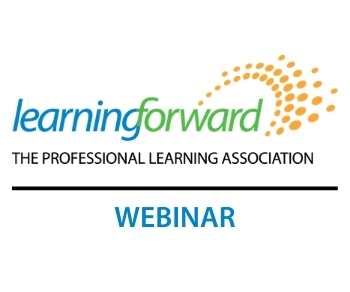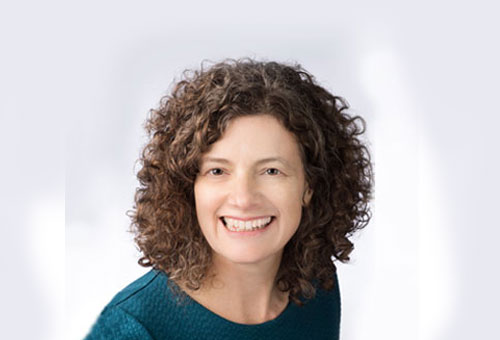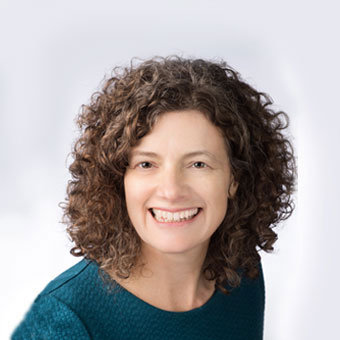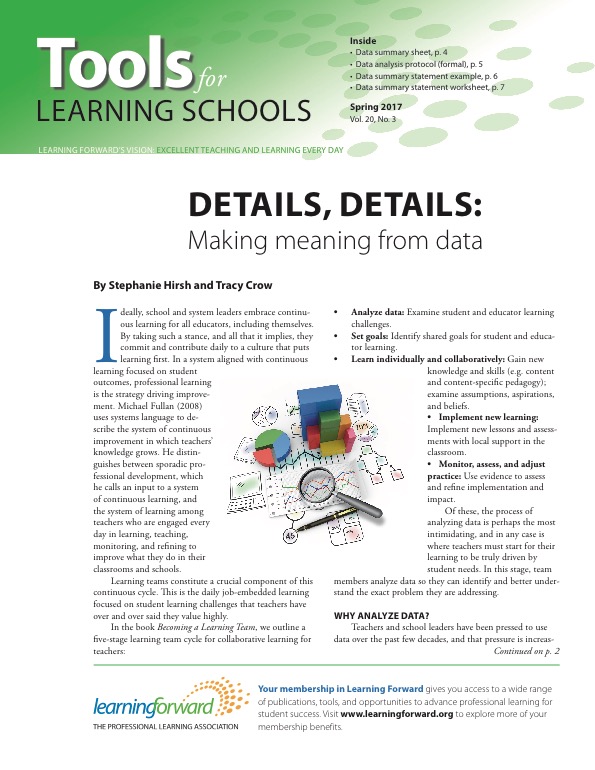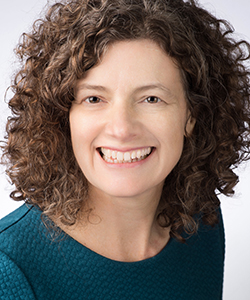
Tracy Crow
Chief Strategy Officer (Retired)
Tracy Crow formerly served as the chief strategy officer/chief communications officer for Learning Forward. She led the revision and dissemination of Standards for Professional Learning and associated tools. Tracy also oversaw publications and communications functions for Learning Forward, including the bimonthly membership magazine The Learning Professional, formerly known as JSD. She oversaw the acquisition, creation, and production of books published by Learning Forward and coordinated the creation and dissemination of white papers and other publications. Tracy contributed to Learning Forward’s branding strategy, website content, and webinars.
All Articles
-
Building a Case for Connecting High-Quality Curricula and Team-Based Professional Learning
Stephanie Hirsh and Tracy Crow of Learning Forward, Eric Hirsch and Lauren Weisskirk of EdReports, and Jody Guarino of Orange County Department of Education help participants deepen their understanding about the research and importance of institutionalizing a coherent and aligned curriculum. Hear about the latest research confirming the importance of […] -
They Do The Right Thing For Students
When we consider how to launch high-quality professional learning effectively, Learning Forward has plenty of advice for logical steps to take, and you’ll find just that in Stephanie Hirsh’s column on p. 8. We know the importance of considering change management processes and assessing educators’ readiness for change. We’re convinced […] -
Here We Go
Whenever we explore particular aspects of leadership, as we do in this issue of The Learning Professional, our intent is to help educators build their capacity to lead effectively, offer insights to district leaders responsible for developing leadership in others, and help all educators understand the critical role that leadership […] -
Here We Go
In this issue of The Learning Professional, we’re publishing the final Research Review column by Joellen Killion. Killion established the column three years ago as a way to bring to practitioners’ attention recent relevant research studies. While the clarity she brought to complex and critical studies was always useful to […] -
Implementing learning teams? You have options
"Should we be rolling out our new learning teams with every teacher across the school or start with just one or two teams?" This question led to an interesting conversation at Learning Forward's Summer Institutes in Denver, Colorado. The educator who asked had spent the previous two days studying Becoming a Learning Team (Learning […] -
Tying It All Together
The learning team cycle as described in Becoming a Learning Team by Stephanie Hirsh and Tracy Crow was created to support teams of teachers working on particular lessons and instructional challenges within classrooms. Even as the day-to-day work of classroom teaching continues, educators are also responsible for addressing improvement goals […] -
Here We Go
While I’m excited that the focus of this issue — Reflecting on Practice — allows us to explore the many opportunities educators have to take a close look at how they teach, I want to flip that phrase and consider what it means when we practice reflecting. The pace of […] -
Ask
My path to leadership was a winding one, and it eventually took me to the central office as a director of assessment and curriculum in a medium-sized urban district. I started as a mentor, led curriculum committees, and took opportunities where I found them, eventually getting my administrator’s license over […] -
Spring 2017 Vol. 20 No. 3
Learning teams constitute a crucial component of the continuous cycle of learning. This is the daily job-embedded learning focused on student learning challenges that teachers have over and over said they value highly. In this issue of Tools for Learning Schools, we look at the five-stage learning team cycle for collaborative […] -
Becoming a Learning Team, 2nd Edition
Becoming a Learning Team offers teachers step-by-step guidance in using collaborative learning time to solve specific student learning challenges.

